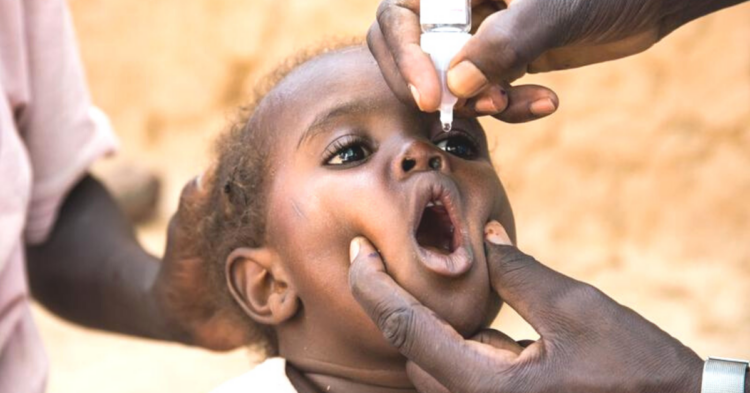As we’ve learned in 2020, defeating a major infectious disease is a huge undertaking, requiring a massive effort from researchers, front line health care workers, governments, and the public at large all working together. It can take years, even decades, to have any hope of wiping out a disease.
For example, smallpox, which killed 3 in every 10 people who contracted it, was the first disease to have a vaccine developed for it back in 1796. Efforts to actually use vaccines to eradicate smallpox didn’t ramp up until the 1950s in North America and Europe, however, and until the late ’60s for the rest of the world. Even with a global effort, smallpox wasn’t declared eradicated worldwide until 1977. The last person known to have died from smallpox passed away in 1978. That’s almost three decades of work for a disease that’s had a vaccine since the 18th century.
So, it’s only after an enormous effort that public health officials have been able to announce a “momentous milestone” as wild polio virus has been declared eradicated from Africa.
Polio was once considered among the most feared childhood diseases.
Even in industrialized nations, hundreds of thousands of children were paralyzed by polio every year until vaccines were developed in the 1950s. But while public health authorities were effective in wiping out polio in industrialized nations, the rest of the world has continued to grapple with the disease.
In 1996, Nelson Mandela and Rotary International announced an initiative to end polio across all of Africa. That year, polio paralyzed more than 75,000 children across the continent, the BBC reported. Even with backers like the Bill and Melinda Gates Foundation and many others spending up to $1 billion a year according to Bloomberg , it has taken almost 25 years to achieve Mandela’s goal.
The eradication effort faced considerable uphill battles.

Not only are there many communities in remote areas that public health workers had to reach but conflicts around the continent prevented distribution of the vaccine to many areas, while also forcing millions to relocate.
Disinformation campaigns have also greatly hindered efforts. As the BBC reported, some religious leaders asserted that the vaccine was secretly an anti-fertility agent being distributed by the U.S. to make Muslim women infertile, while Nigerian medical professionals ran lab tests to refute the accusations. In 2013, nine people distributing the polio vaccine in Nigeria were shot and killed by suspected Boko Haram militants.
Nigeria has been the last source of trouble for polio in Africa.

The nation has also seen remarkable success, however. A decade ago, Nigeria accounted for half of the world’s polio cases, according to the BBC . The last recorded case also happened in Nigeria, four years ago.
Much of the success can be attributed to polio survivors. “Many rejected the polio vaccine, but they see how much we struggle to reach them, sometimes crawling large distances, to speak to them,” Misbahu Lawan Didi, president of the Nigerian Polio Survivors Association, told the BBC. “We ask them: ‘Don’t you think it is important for you to protect your child not to be like us?”
So it’s little wonder that public health authorities are so excited to be able to announce that Africa is now free of the wild polio virus.
“This is a momentous milestone for Africa,” aid Matshidiso Moeti, the World Health Organization’s regional director for Africa, according to Bloomberg . “Now future generations of African children can live free of wild polio.”
“This is one of the greatest achievements in public health history,” wrote WHO chief Tedros Adhanom Ghebreyesus in an Al Jazeera opinion piece. “Delivering polio vaccines to every child in the African region and wiping out the wild virus is no small feat, and the human resources, skills and experience gained in the process leave behind a legacy in how to tackle diseases and reach the poorest and most marginalised communities with lifesaving services.”
There were still 177 polio cases in Africa, but there is a distinction to make.
In the wild, polio appears in three distinct strains. Two of those strains have already been eradicated worldwide. The third is what was declared eradicated in Africa.
But in rare cases, a form of the virus can mutate from the oral vaccine, which uses a weakened live virus rather than an inert virus, and spread in communities where immunizations are under-represented. Those 177 cases are all derived from those mutated viruses.
In the wild, however, polio now exists in only two nations: Afghanistan and Pakistan.
And so authorities aren’t letting their guards down despite the eradication declaration.
“Until wild polio virus is eradicated everywhere, it’s still a risk everywhere,” Michael Galway, a polio expert at the Bill & Melinda Gates Foundation, told Reuters . “There’s nothing that prevents the virus from making the route from Pakistan and Afghanistan to Africa.”
“We must stay vigilant and keep up vaccination rates to avert a resurgence,” Moeti echoed. “The expertise gained from polio eradication will continue to assist the African region in tackling Covid-19 and other health problems that have plagued the continent for so many years and ultimately move the continent toward universal health coverage.”
h/t: BBC , Al Jazeera , Bloomberg

















































